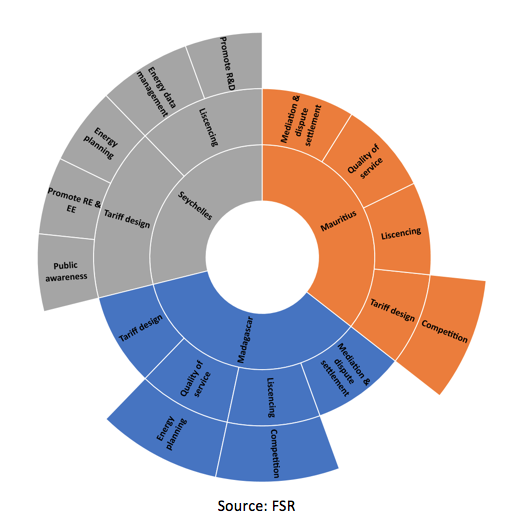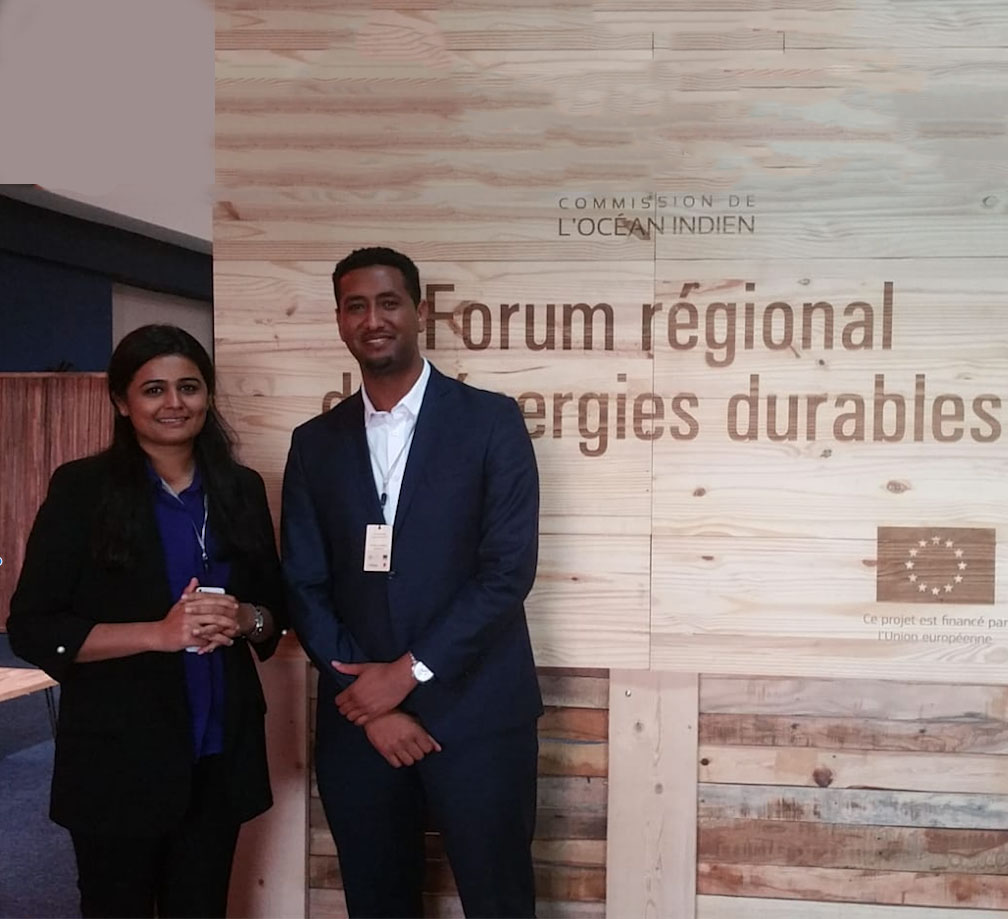Week 4 – FSR Topic of the Month:
Energising Islands in the age of transition
This month, the FSR is featuring the energy transition in the Indian Ocean islands of Mauritius, Seychelles, Madagascar and Comoros, presenting findings based on our engagements with the island nations. In our last three posts, we highlighted the particularities of energy transition in the context of these islands, how Madagascar and Comoros are dealing with the dual challenge of transition to clean energy system and electrification, and how the islands are promoting and integrating renewables into their energy system.
Written by: Swetha RaviKumar Bhagwat & Samson Yemane Hadush
This week’s post zooms into the regulatory system of the Indian Ocean islands. Specifically, we will look at how the regulatory body is set up, what it is mandated to do, what challenges it is currently facing and its role on the road to energy transition.
Who is the regulator?
In the Indian Ocean islands, only Madagascar, Seychelles and (recently) Mauritius have regulatory bodies that overlook their energy sector.
Madagascar was one of the first islands to have a regulatory body, namely the Office de Régulation de l’électricité (ORE). It was established in 1999 by law as a public administrative body responsible for the control of the electricity sector, with legal and financial autonomy. It is composed of the electricity council, which is the decision-making body, and the executive secretariat, composed of the administrative and technical body. As per the new regulation ‘Code de l’Electricité’, promulgated on April 10, 2018, ORE will be rebranded, and renamed as “Autorité de Régulation de l’Electricité” (ARELEC).
In July 2009, the Seychelles Energy Commission (SEC) was established for the oversight and planning of the Government’s approach on energy issues, and has also been responsible for coordinating the implementation of the National Energy Policy. In 2012, a new energy act was enacted in which the SEC has retained the mandate to implement the National Energy Policy and gained the additional responsibility of acting as the electricity regulator of the country.
In Mauritius, the Utility Regulatory Authority (URA) has been set up in 2016 in accordance with URA act 2004 to regulate utility services, namely electricity, water and wastewater. The objective of the authority is to ensure the sustainability and viability of the utility services, protect the interest of both existing and future customers, promote efficiency in both operations and capital investments in respect of utility services, and promote competition to prevent unfair and anti-competitive practices. The URA is a multi-utility regulator which makes it unique in the region. In the context of islands which are small in size and have limited scale advantage, it is a relevant consideration to examine if a multi-utility regulator is more efficient than a single sector regulator.
What does the regulator do?
Regulators vary in terms of their roles and responsibilities (see figure below). The common tasks performed by all three regulators are licensing and electricity tariff design. However, while the Malagasy regulator determines and sets the electricity tariff, the Seychelles energy commission only sets the procedure for setting and reviewing tariffs, while in Mauritius it regulates the tariff set by a licensee.
The regulators in Madagascar and Mauritius are mandated to regulate the quality of services, promote competition, and mediate and settle disputes. Developing the national energy plan is also the task of the regulators in Madagascar and Seychelles. Unlike the other regulators, the Seychelles regulator is mandated to promote renewable energy and energy efficiency, create public awareness, promote research and development, collect and maintain energy data. The SEC inherited these tasks from the time before the commission assumed the role of the regulator in 2012.

What challenges do the regulators face?
Regulators on the Indian Ocean islands face challenges including high government interference, limited capability to regulated utilities, lack of oversight of off-grid developments and electrification.
The lack of regulatory independence is manifested in different ways. For instance, the SEC sources its funds from the National Assembly, the money accrued from its operations, and other sources like loans, donations or grants. Yet the commission must submit a business plan to the ministry responsible for energy and get approval. This could compromise the administrative and financial autonomy of the commission. Seychelles is revisiting its regulatory and legal framework to adapt to the changing needs and dynamics in the energy sector.
Listen to our interview with T. Imaduwa, CEO of Seychelles Energy Commission
The limited capability of the regulatory body hinders its effectiveness in introducing and maintaining strong regulatory measures that improve the performance of the sector. Particularly, measures that can ensure the efficiency and financial health of the regulated utility. This calls for more capacity building.
The lack of oversight on off-grid developments and electrification is one of the regulatory gaps that we notice in the current set up, particularly in countries like Madagascar where 85% of the population does not have access to electricity. There is no clear mandate given to the regulator, be it to promote electrification or renewables and to ensure the effectiveness of the utility to expand its coverage by introducing various incentive schemes.
For more details on renewable energy best practices on these islands, read our upcoming report to be launched in October 2018.







